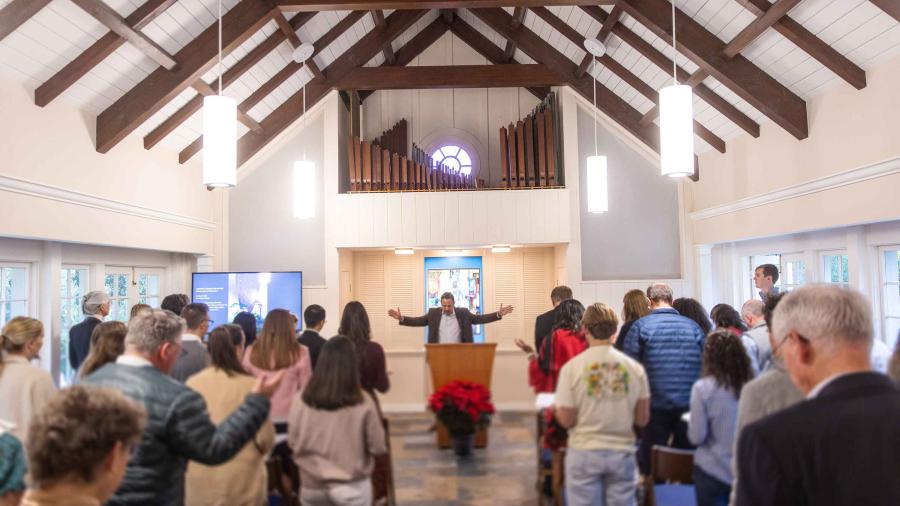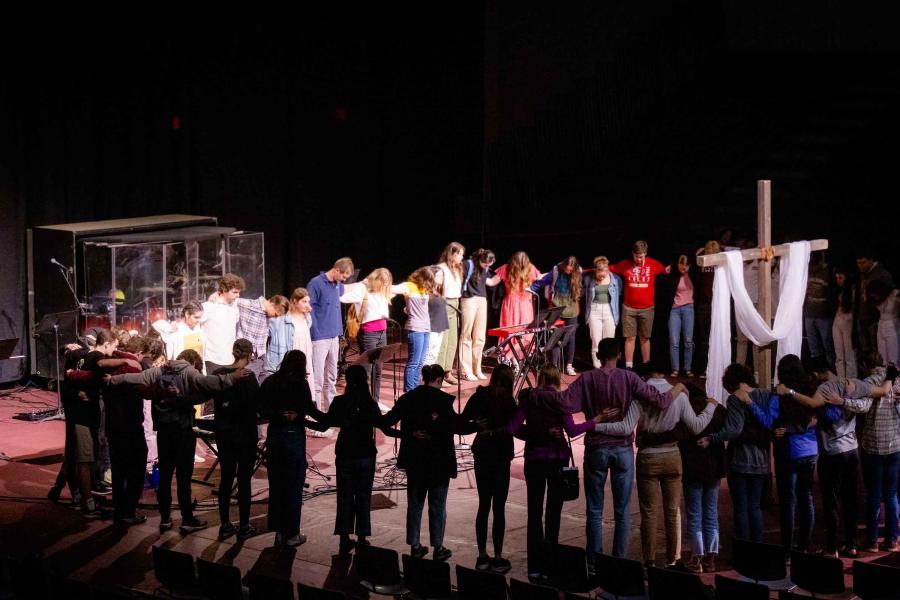See You Sunday? Study Finds Immediate Benefit to Churchgoers

Regular weekend attendance to a religious service creates an immediate increase in positive emotions as well as a decrease in negative ones, according to a new study of U.S. adults. Researchers found there was no change in the emotional well-being of non-regular attendees.
The study, “’See You Sunday?’ Effects of Attending a Specific Weekend Religious Service on Emotional Well-Being: A State/Trait Analysis of the SoulPulse Study,” appears in Journal for the Scientific Study of Religion. It relies on a sample of 2,869 individuals participating in SoulPulse, a cell-phone based study that collected data twice-daily via survey links sent to respondents’ smartphones. The research sheds light on exactly what happens in the emotional lives of religious service attendees after participating in a religious service.
“Almost 100% of the research in this area relies on estimated patterns of religious attendance,” said Blake Victor Kent, associate professor of sociology at Westmont College. “That means we know a lot about emotional well-being for people who check a box on surveys saying how much they go to church, but we know almost nothing about what actually happens emotionally in the hours and days after someone actually attends.”
For the analysis, religious service attendance was measured both as a habit (the traditional method) and also in terms of actual attendance during the two-week study period. To find out whether respondents actually attended services on a given weekend, the survey was sent out on Sunday nights included the question: “Did you attend a religious service this past weekend?” Respondents were also asked to respond to a variety of emotional well-being items which measured 10 emotional states. These included positive emotions such as gratitude, joy, and satisfaction as well as negative emotions like anxiety and depressive symptoms.
“The day-by-day nature of data collection in SoulPulse allowed us to make two really interesting comparisons,” Kent said. “First, we were able to compare those who attended a religious service in a given weekend against those who didn’t. Second, taking only those who did attend on a given weekend, we were able to compare those who were regular attenders against those who didn’t attend regularly.”
Results from the study showed that only those who both attended services on a given weekend and were habitual attenders captured an emotional benefit.
“It’s remarkable,” Kent said. “In order to experience a positive emotional benefit from going to church you have to not only attend, but attend regularly. This is probably because in order to benefit you need to be familiar with the routines, the style of worship, and the people with whom you are worshiping. If not, you just aren’t able to participate with the same level of familiarity, and the social connections just aren’t there. Thus, there is little or no emotional impact.”
The researchers, who include Laura Upenieks of Baylor University, Daniel Jang of Baylor University, Christopher Ellison of the University of Texas – San Antonio, and Bradley Wright of the University of Connecticut, say these findings point to the importance of spiritual capital, a set of spiritual resources that can be accumulated similarly to social or financial capital. Spiritual capital acquired through regular religious participation can set in motion an upward spiral of experiences that contribute to emotional well-being and flourishing, the researchers say.
Kent and his colleagues were also able to assess how long emotional benefits lasted, finding that most dissipated by Monday morning. “Not only do frequent religious attendees experience better emotional health on average compared to those who don’t, but every time they attend services they get a temporary boost in well-being,” Kent says. “It’s like a shot in the arm.”


